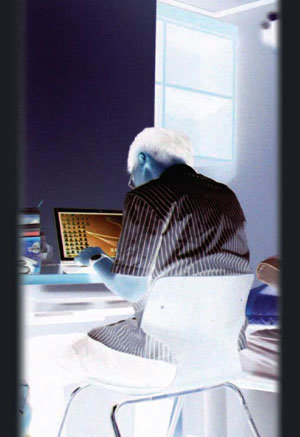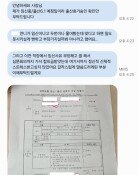Aspergers Syndrome

In the wake of the horrible incident at Virginia Tech, Aspergers syndrome, a mental disorder which the gunman Cho Seung-hui had been reportedly suffering from, is attracting peoples attention. Some parents are concerned that their children with reserved and timid characters might be affected by the same disease.
Often accompanied by multiple-personality disorder or depression-
The concept was first been acknowledged in the late 1970s in Japan, when the term hikikomori was first coined. It has been widely recognized as a social problem since the late 1990s. According to a Korean Academy of Adolescent Psychiatry report published in February, data demonstrates the number of sufferers in Korea has increased as well.
The syndrome is a new type of psychiatric disease that does not belong to the traditional categories of mental disorders such as personality disorders or depression. Whether one is a patient is diagnosed based on the length of the period the person has refused to have contact with otherssix months in Japan and three in Korea.
In research conducted by KAAP last year on 32 patients suffering from the syndrome, 75 percent responded that they hadnt met anyone in person for a week. Half of those examined answered that they didnt have a person to share their inner ideas with. Among the mostly mentioned reasons were that they felt it would be burdensome to meet many people and that they didnt want to be interfered with by others.
One of the most apparent symptoms of the disorder is a persecution complex, a feeling that you are being treated badly by others, especially families. Patients tend to think that parents are forcing them to study or work, thereby harming themselves. They even avoid having meals with parents.
While they lack of social activities, they spend time daydreaming, often setting up grand plans, showing aspects of megalomania. For instance, you can picture a boy who has just quit middle school drawing up a plan to be admitted by Harvard University. Depending on the case, the disorder accompanies multiple-personality disorder, depression, personality disorder, or anxiety disorder.
Not all loners appear problematic. In fact, the results of KAAPs survey demonstrate that the level of academic performance of 47 percent of the sufferers was about the average of those unaffected or better.
People in their 20s or early 30s should be engaged in variety of social activities. Those of this age group who are still dependent on their parents, indulge themselves with computer games or prefer to work only at night should reflect on their adolescence and think whether they had suffered from Aspergers syndrome, said Kim Boong-nyun, a professor of neuropsychiatry at Seoul National University Hospital.
Scolding only worsens the disorder-
It is necessary to undergo examination by an expert. If parents try to solve the problem by scolding their child or circumscribing the matter to a family affair, it may only intensify the aggressiveness latent in loners.
Since many patients affected by the syndrome also have troubles with other kinds of mental disorders, proper use of medication alone after an accurate diagnosis could help considerably.
Family efforts are also of vital importance. Sometimes it is necessary to let patients meet members of their extended families such as grandparents or friends from their age group. Since there are many cases in which the loner is bullied by others in a group, keeping interest in the childs school life is also very significant.
Talking to a loner in an intimidating manner is a bad idea. Fathers should accept their children the way they are, while mothers should refrain from nagging. It is better to build up a relationship based on dialogue with trivial subjects such as the weather, entertainment, meals, and hobbies. It is also important to give lessons by assigning small responsibilities, such as setting up a plan to go to the movies.
Kim Hyun-su, director of the Pleasure of Life Mental Health Clinic, said, Normally, with the full cooperation of other family members, it takes about a year to three years to cure the syndrome. They should help the patient acquire the energy to live their lives by helping them make friends and take responsibilities, no matter how small, in social groups and activities.
*Kim Boong-nyun, Shin Min-sup (professors of neuropsychiatry at Seoul National University Hospital), and Kim Hyun-su (Pleasure of Life Mental Health Clinic) supplied the expertise for this article.
artemes@donga.com
Headline News
- N. Korea launches cyberattacks on S. Korea's defense companies
- Major university hospital professors consider a day off each week
- Italy suffers from fiscal deficits from ‘Super Bonus’ scheme
- Inter Milan secures 20th Serie A title, surpassing AC Milan
- Ruling and opposition prioritize spending amid tax revenue shortfalls







